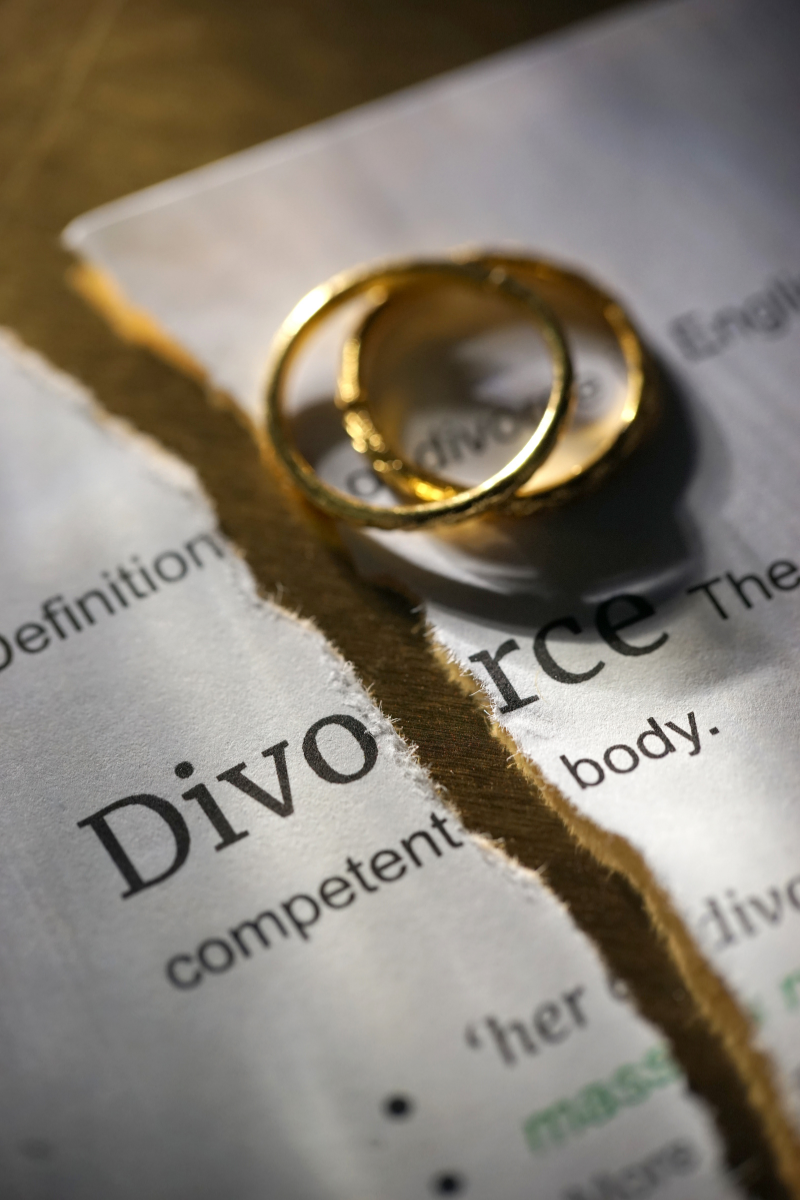Erin E. Masters Recognized by Illinois Super Lawyers® in 2025
Masters Law Group is thrilled to announce that Erin E. Masters has been named to the Top 50 Women Illinois Super Lawyers® List for 2025.
Erin’s inclusion in the “Super Lawyers®” category emphasizes her impact on the legal field and her dedication to helping families navigate challenging times. This recognition by Super Lawyers® is a testament to Erin’s unwavering commitment to excellence, making her one of Illinois’s most respected family law attorneys.
A Career Defined by Dedication and Excellence
Erin E. Masters’ legal journey is a testament to her passion for advocacy and commitment to achieving the best outcomes for her clients. She began her academic pursuits at Indiana University, earning her Bachelor of Arts degree. During her time there, she cultivated a deep passion for helping others and honed the critical thinking skills that would later define her legal career.
She continued her education at the John Marshall Law School, now part of the University of Illinois Chicago School of Law. While in law school, Erin actively participated in various legal organizations, sharpening her skills in litigation and negotiation. This strong foundation set the stage for her future success as one of Chicagoland’s leading family law attorneys.
After earning her Juris Doctor degree, Erin devoted her career to family law, which requires a unique blend of legal acumen, empathy, and strategic thinking. She quickly gained a reputation for her precision and compassion in handling high-conflict child custody cases (parental responsibilities). Her ability to advocate fiercely for her clients while keeping the child’s best interests at the forefront has earned her and her peers’ trust and respect.
The Impact of Recognition by Super Lawyers®
Erin E. Masters’ inclusion on the Super Lawyers® list highlights her exceptional achievements and reinforces the high standards upheld by Masters Law Group. This recognition reflects the firm’s unwavering dedication to delivering client-focused representation in family law. It also helps solidify its reputation as a trusted advocate for families.
Super Lawyers® actively connects individuals and families with reliable legal counsel by showcasing attorneys who demonstrate exceptional skill and commitment to their fields. As a trusted guide, it empowers those facing complex legal challenges to find the representation they deserve.
Erin’s recognition as a Super Lawyer® highlights her exceptional accomplishments and establishes her as one of Illinois’s foremost family law attorneys. Known for her experience and compassion, she has become a trusted advocate, guiding families through some of life’s most challenging transitions. Her inclusion on this prestigious list reinforces her reputation as a reliable and dedicated partner for those seeking skilled legal counsel.
 What Makes the Super Lawyers® List Special?
What Makes the Super Lawyers® List Special?
The Super Lawyers® list is one of the most sought-after honors in the legal profession. It recognizes attorneys who have demonstrated exceptional professional achievement and garnered significant peer recognition. Erin E. Masters’ inclusion in the “Super Lawyers®” and Top 50 Women Illinois Lawyers categories is an extraordinary accomplishment. The Super Lawyers® selection process is a comprehensive and patented multiphase evaluation that includes:
- Peer Nominations – Attorneys are nominated by their peers for their outstanding work.
- Independent Research – Candidates are evaluated on 12 achievement indicators, such as verdicts, settlements, certifications, and pro bono work.
- Peer Evaluation – Final candidates undergo a peer review to ensure ethical standards and exceptional skill.
Only 5% of attorneys in each state are awarded the “Super Lawyers®” designation. Erin’s dual recognition highlights her exceptional legal experience and profound impact on the lives of countless families across Illinois.
Erin E. Masters’ Impact on Illinois Families
At the heart of Erin’s practice is her dedication to her clients. Whether navigating complex divorce proceedings or advocating for fair parenting time, Erin’s empathetic and client-focused approach helps her clients feel supported. She is also known for her ability to de-escalate high-conflict situations. She creates solutions that are in the best interests of all parties, especially children. This commitment has earned her the respect and trust of families throughout Illinois.
Family law often involves intricate legal, emotional, and financial considerations. Erin’s ability to tackle these challenges head-on while maintaining the highest ethical standards has positioned her as a leader in the field. Her work addresses immediate legal needs and helps families create a stable foundation for the future.
About Masters Law Group
Masters Law Group is a distinguished legal firm with focus and experience in family law matters locally in Cook County and DuPage counties and across the United States. Focusing on delivering tailored solutions for each client’s unique circumstances, our family law attorneys have become a trusted resource for families across Illinois. We are dedicated to providing compassionate, comprehensive legal representation in areas such as:
- Divorce
- Allocation of Parental Responsibilities
- Mediation
- Hague Convention and Parental Child Abduction
Why Choose Masters Law Group?
Our team of family law attorneys is committed to providing tailored solutions that meet clients’ unique needs, including:
- Client-Centered Approach: Masters Law Group prioritizes the well-being of its clients, ensuring personalized strategies for every case.
- Proven Experience: With a deep understanding of Illinois family law, the firm consistently delivers results.
- Compassionate Representation: The team supports families during emotionally challenging times.
About Super Lawyers®
Super Lawyers® is a premier rating service that identifies and honors exceptional attorneys across over 70 practice areas. Dedicated to maintaining the highest standards of professionalism, Super Lawyers® serves as a trusted resource for individuals and families seeking top-tier legal representation. Its commitment to a thorough and unbiased evaluation process sets Super Lawyers® apart. Below are the key features that make Super Lawyers® a trusted authority in the legal industry:
- Rigorous Selection Process: Combines peer nominations, independent research, and peer evaluations.
- Ethical Standards: Ensures all honorees meet strict ethical guidelines.
- Comprehensive Listings: Offers a valuable resource for consumers and attorneys searching for legal experts.
For more details, visit Super Lawyers®.
Final Thoughts
Masters Law Group is honored to celebrate Erin E. Masters’ well-deserved recognition by Illinois Super Lawyers®. Her dedication to her clients and her exceptional contributions to family law exemplify the values that guide our practice. Congratulations, Erin, on this remarkable achievement!
If you’re navigating a family law matter and seeking trusted legal counsel, Erin E. Masters and the team at Masters Law Group are here to help. With a proven track record and a client-first approach, they are ready to support you during life’s most challenging transitions.
Contact us today to learn more about our award-winning attorneys.














